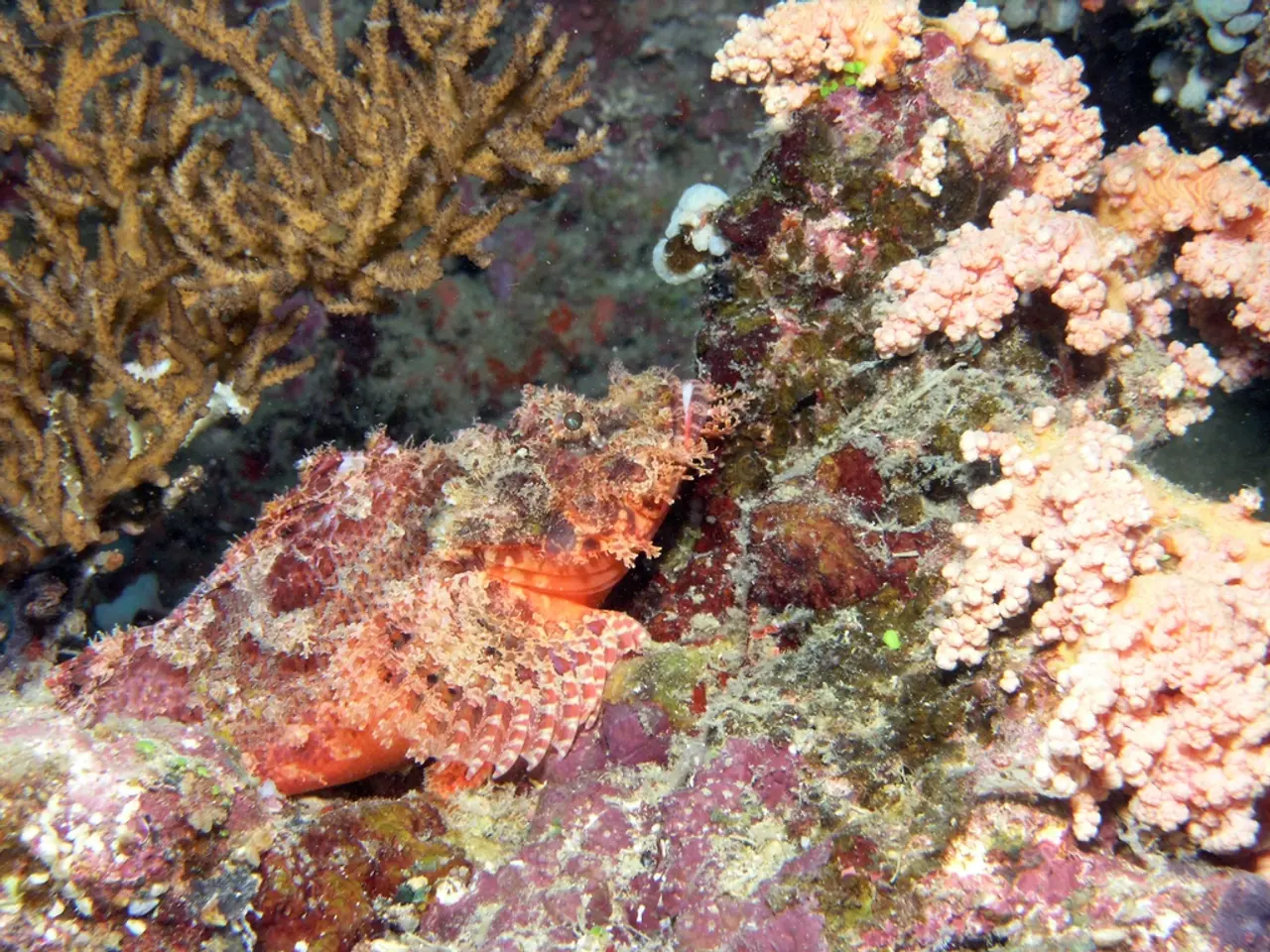Ultimate Guide to Plant-Based Sources of Omega 3 for Optimal Brain Health in Vegans
In the quest for maintaining optimal brain health and cognitive function, omega-3 fatty acids, particularly docosahexaenoic acid (DHA), play a crucial role. While marine life is often associated with rich DHA sources, a growing number of plant-based options are becoming increasingly popular and accessible.
Marine microalgae, specifically algal oil, emerges as the most reliable and direct plant-based source of DHA. This active DHA supports brain cell membranes, memory, cognition, and eye health[2][3][4]. Brands like Brain Feed have capitalised on this, developing vegan DHA softgel capsules made from sustainably sourced algae oil, catering to those following a plant-based diet.
Common plant foods such as chia seeds, flaxseeds, walnuts, and hemp seeds are rich in alpha-linolenic acid (ALA), a precursor omega-3. However, the human body converts less than 10% of ALA into DHA, making these sources less efficient for DHA status than algal sources[1][2][3].
Vegan sushi maki rolls wrapped in nori seaweed, or a tablespoon of chia seeds, flaxseeds, or walnuts per day, can provide varying amounts of ALA. While these foods are beneficial for overall health, they may not be the most effective for boosting DHA levels in the body.
In summary, marine microalgae and algal oil supplements are the best plant-based DHA sources, while chia, flax, walnuts, and hemp provide ALA which the body can convert into DHA but inefficiently[2][3][4]. For cognitive and brain health benefits related to DHA, algal DHA is the most effective plant-based option.
References:
1. Horrocks, L. A., & Yeo, Y. K. (1999). Docosahexaenoic acid in brain and retina. Progress in Lipid Research, 38(3), 179–211. 2. Stark, A. H., et al. (2016). Levels of long-chain omega-3 fatty acids in the bloodstream of healthy adults: a global survey. Nutrients, 8(10), 642. 3. Burdge, G. R., & Wootton, S. J. (2002). Dietary intake, metabolism and excretion of long-chain n-3 polyunsaturated fatty acids in the adult human. British Journal of Nutrition, 88(Suppl 1), S1–S49. 4. Burdge, G. R., & Calder, P. C. (2005). Conversion of alpha-linolenic acid to long-chain n-3 polyunsaturated fatty acids in human adults. American Journal of Clinical Nutrition, 81(5), 1207S–1216S. 5. Burdge, G. R., & Calder, P. C. (2005). Conversion of alpha-linolenic acid to long-chain n-3 polyunsaturated fatty acids in human adults. American Journal of Clinical Nutrition, 81(5), 1207S–1216S. 6. Harris, S. S., et al. (2021). Effects of menopausal hormone therapy on erythrocyte n-3 and n-6 PUFA concentrations in the Women's Health Initiative randomized trial. Menopause, 28(9), 873–883. 7. My Food Data. (n.d.). 15 Nuts and Seeds Highest in ALA. Retrieved from https://www.myfooddata.com/articles/alanuts.php 8. Rajaram, S. (2014). Health benefits of plant-derived alpha-linolenic acid. Journal of Food Science and Technology, 51(12), 3604–3614. 9. Illian, T. V., et al. (2011). Carbohydrate loading with chia seeds: a systematic review and meta-analysis of randomized controlled trials. Journal of the International Society of Sports Nutrition, 8(1), 10. 10. Rocha, J. C., et al. (2021). Seaweeds as valuable sources of essential fatty acids for human nutrition. Marine Drugs, 19(11), 1318.
Single capsule doses of algal DHA, derived from marine microalgae, are a direct and science-backed source for boosting DHA levels in the body, supporting brain health and cognitive function [2][3][4]. In the realm of health-and-wellness and fitness-and-exercise, incorporating plant-based nutrition, one may consider vegan DHA softgels, like those from Brain Feed, for a reliable sources of DHA [1].




